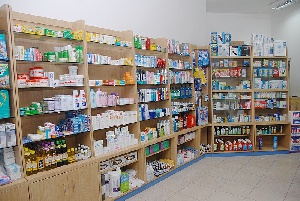The Chamber of Pharmacy, Ghana and the Pharmaceutical Manufacturers Association of Ghana, have expressed qualms about the difficulties associated with import clearance at Ghana's ports in recent times.
They explained that some cumbersome processes under the new system operated by UNI-PASS had been very costly for their members in terms of time and actual value of service at the ports.
A press release issued jointly by the two groups stated that “the virtual manual process has resulted in delays in the clearing of pharmaceutical imports, which has come with the risk of high cost in demurrage,” adding: “The frustrations of the slow and unwieldy processes caused by the system rather than the importers has also placed our members at the mercy of the same system, with the prospects of further cost in penalties of various kinds.”
The press release also indicated that they could ran at a loss if their imports were expired before they are cleared due to the problems at the ports.
“It is our fear that some of the pharmaceutical raw materials could reach their expiry dates before they are cleared from the ports if the snail’s-pace manual process is not resolved quickly,” the release stated.
The release, describing the pharmaceutical industry as “a mainstay of the world's survival”, especially due to the COVID-19 pandemic, stated that “the present chaos at Ghana's ports is the least we expected to experience in our effort to deliver to the needs of the nation.”
The groups, therefore, called on the government to resolve the recent challenges associated with import clearance at Ghana's ports as “the bottlenecks, we wish to emphasise, have imposed harsh burdens on our members who have had to fall on government support to survive the COVID-19 conditions.”
They also expressed worry, saying that “the current situation persists, it could erode the benefits of the financial and other forms of cushioning we received from the government to overcome the COVID-19 era challenges.”

















